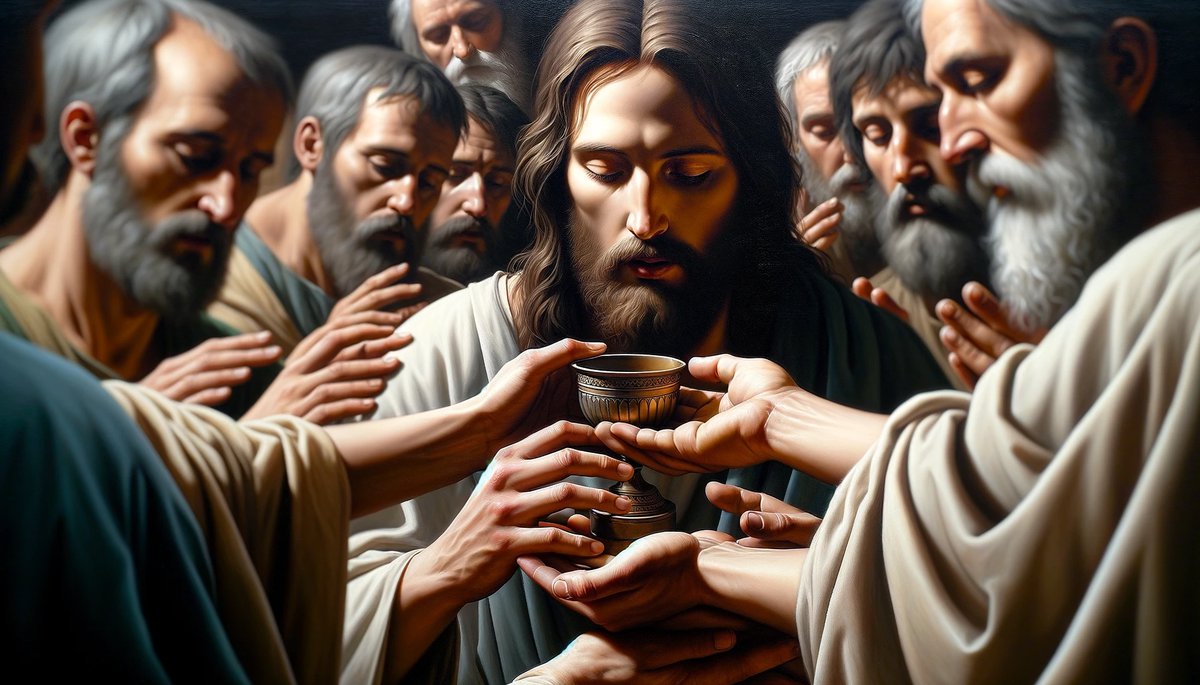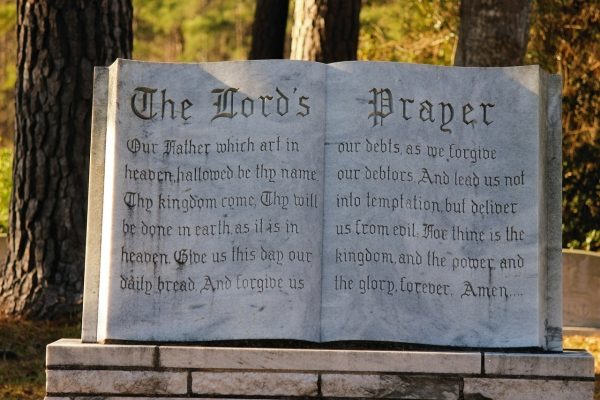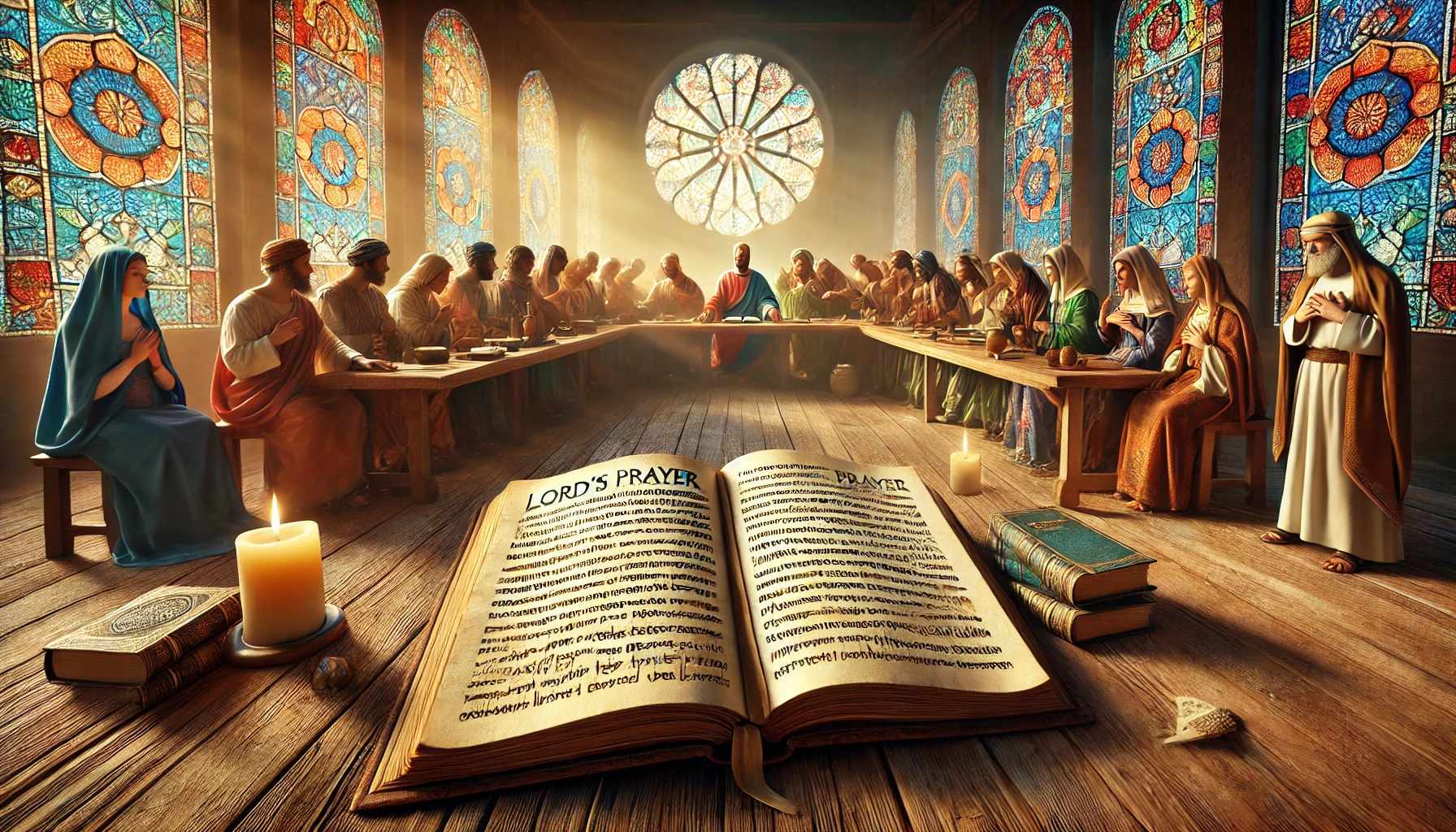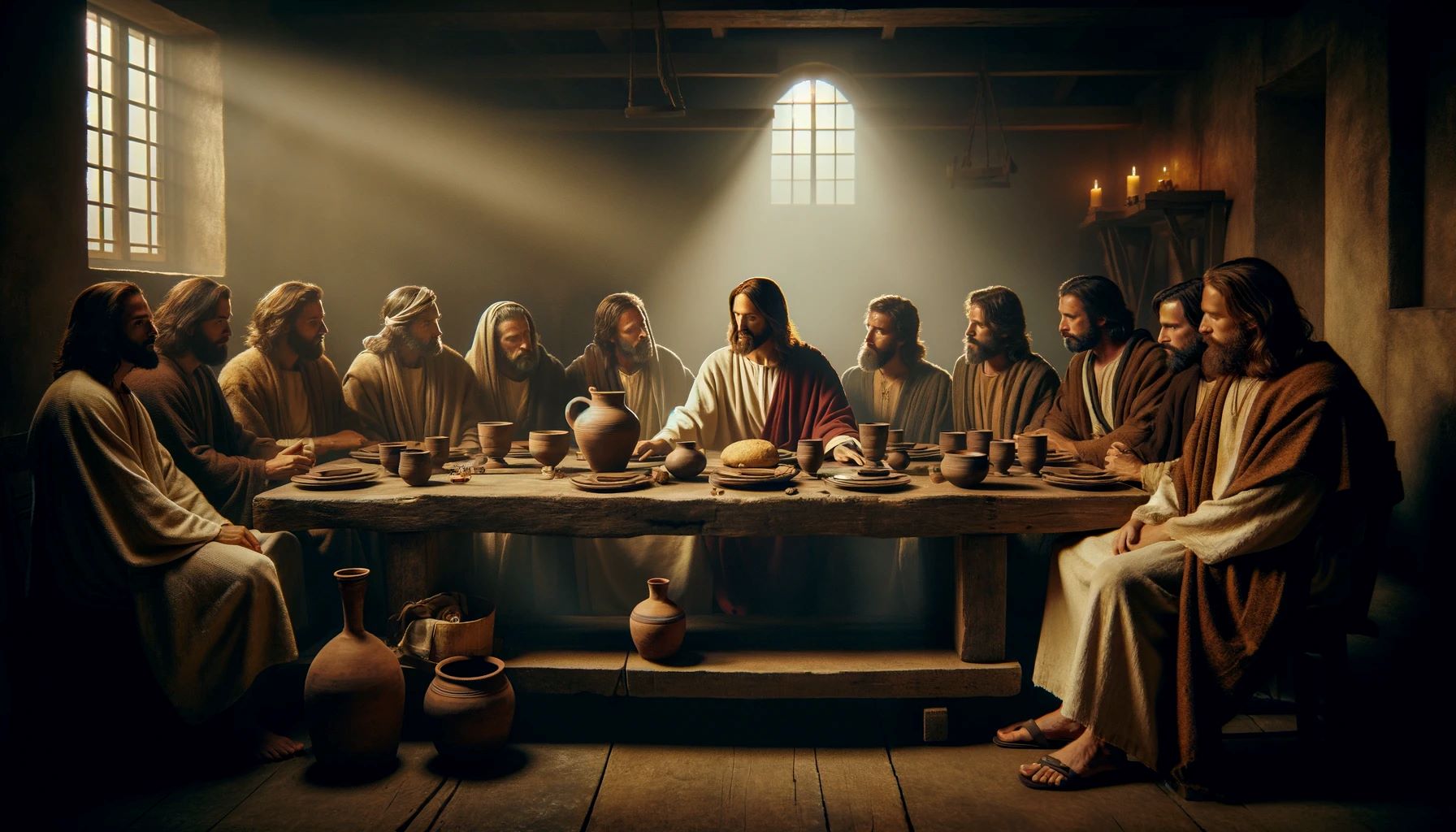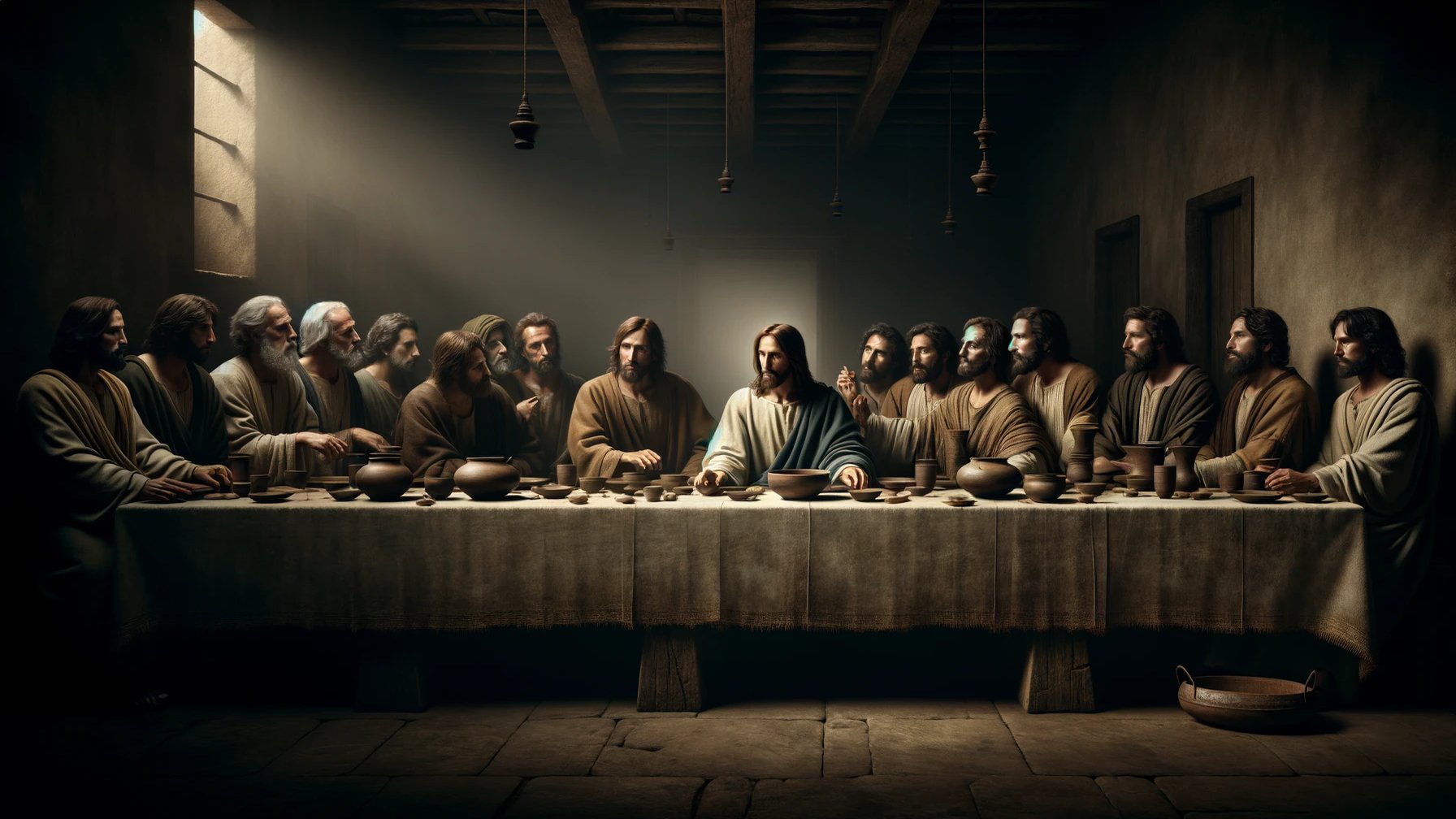Home>Theology and Spirituality>What Is The Lord’s Supper Or Communion
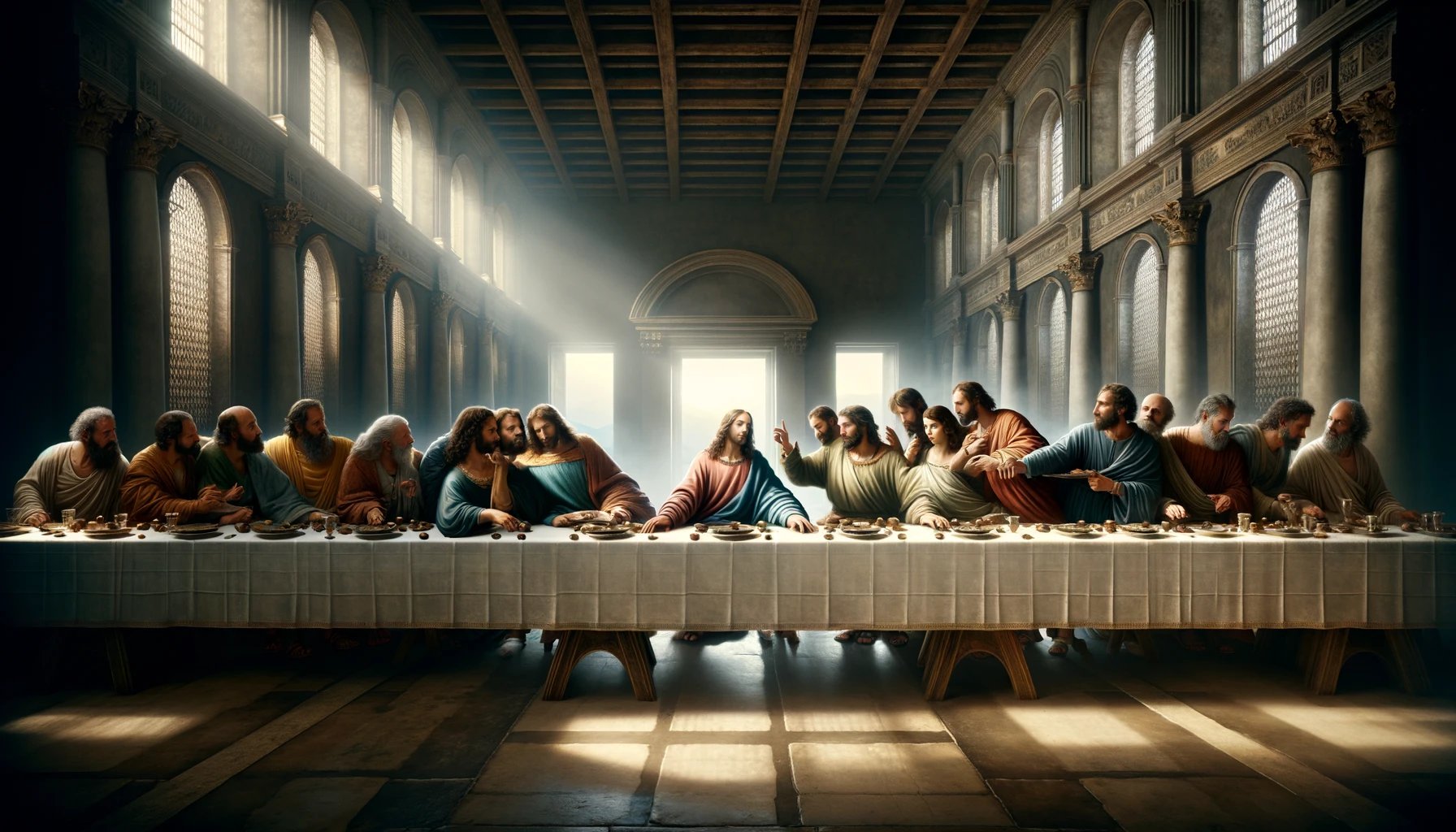

Theology and Spirituality
What Is The Lord’s Supper Or Communion
Published: February 19, 2024
Jason DeRose, Managing Editor at Christian.net, uses his expertise in religion and journalism to deepen understanding of faith's societal impacts. His editorial leadership, coupled with a strong academic background, enriches the platform’s diverse content, earning him recognition in both journalism and religious circles.
Discover the significance and practice of the Lord's Supper or Communion in theology and spirituality. Explore its meaning and importance in Christian faith.
(Many of the links in this article redirect to a specific reviewed product. Your purchase of these products through affiliate links helps to generate commission for Christian.net, at no extra cost. Learn more)
Table of Contents
Introduction
The Lord's Supper, also known as communion, is a sacred and symbolic ritual practiced by Christians around the world. It holds profound significance in the Christian faith, serving as a commemoration of Jesus Christ's last supper with his disciples before his crucifixion. This timeless tradition has been passed down through generations, uniting believers in a shared experience of remembrance and spiritual nourishment.
The Lord's Supper is a cornerstone of Christian worship, embodying the essence of Christ's sacrificial love and the spiritual nourishment he offers to his followers. This sacred observance is a testament to the enduring legacy of Jesus Christ and the foundational principles of the Christian faith.
As we delve into the historical, theological, and symbolic aspects of the Lord's Supper, we will gain a deeper understanding of its profound significance and the diverse practices associated with this sacred ritual. From its origins in the Last Supper to its enduring presence in modern Christian worship, the Lord's Supper continues to serve as a powerful symbol of unity, remembrance, and spiritual renewal within the Christian community.
Historical Background of the Lord's Supper
The historical roots of the Lord's Supper can be traced back to the events of the Last Supper, a momentous occasion that took place in Jerusalem during the Passover feast. According to the New Testament, Jesus Christ shared a final meal with his disciples before his crucifixion, imparting profound teachings and establishing the symbolic ritual that would come to be known as the Lord's Supper or communion.
During this poignant gathering, Jesus took bread, blessed it, and broke it, sharing it with his disciples, saying, "This is my body, which is given for you. Do this in remembrance of me." He then took the cup of wine, gave thanks, and passed it to his disciples, declaring, "This cup that is poured out for you is the new covenant in my blood."
The Last Supper thus became a pivotal moment in Christian history, symbolizing the impending sacrifice of Jesus Christ and the establishment of a new covenant between God and humanity. The disciples were instructed to continue this practice in remembrance of Christ, thereby laying the foundation for the ritual of communion.
Following Jesus' crucifixion and resurrection, the early Christian community upheld the tradition of the Lord's Supper as a central element of their worship. The apostle Paul provided further theological insight into the significance of communion in his first letter to the Corinthians, emphasizing the unity of believers through participation in the body and blood of Christ.
Over the centuries, the Lord's Supper evolved into a sacred sacrament within Christian liturgy, serving as a tangible expression of faith, remembrance, and spiritual nourishment. The historical legacy of the Last Supper continues to resonate deeply within Christian tradition, shaping the communal worship practices of diverse denominations and reaffirming the enduring significance of Christ's sacrificial love.
The historical background of the Lord's Supper stands as a testament to the profound impact of Jesus' final meal with his disciples, transcending time and space to unite believers in a timeless expression of faith and remembrance.
Theological Significance of the Lord's Supper
The Lord's Supper holds profound theological significance within the Christian faith, embodying the core tenets of redemption, unity, and spiritual nourishment. At its theological essence, communion serves as a tangible expression of Christ's sacrificial love and the redemptive power of his atoning sacrifice on the cross.
Central to the theological understanding of the Lord's Supper is the concept of "anamnesis," a Greek term meaning "remembrance" or "memorial." In the context of communion, anamnesis transcends mere recollection; it encapsulates a profound spiritual reenactment of Christ's sacrificial offering. Through the partaking of bread and wine, believers engage in a sacred remembrance of Christ's redemptive work, acknowledging the transformative impact of his death and resurrection on humanity's spiritual destiny.
Furthermore, the theological significance of the Lord's Supper is intricately linked to the concept of communion as a means of spiritual nourishment. In partaking of the elements, believers symbolically partake of the body and blood of Christ, signifying a profound spiritual union with the Savior. This act of communion represents a spiritual feast wherein believers receive sustenance for their souls, experiencing a deepening of their relationship with Christ and a renewal of their faith.
Moreover, the Lord's Supper serves as a powerful symbol of unity within the body of Christ. As believers gather around the communion table, they partake of the same elements, signifying their shared identity as members of the Christian community. This act of communal participation underscores the interconnectedness of believers, transcending individual differences and uniting them in their common faith in Christ.
From a theological perspective, the Lord's Supper also embodies the anticipation of Christ's return and the ultimate consummation of God's kingdom. In partaking of communion, believers express their longing for the eschatological banquet, where they will be united with Christ in the fullness of his kingdom.
In essence, the theological significance of the Lord's Supper encompasses themes of remembrance, spiritual nourishment, unity, and eschatological hope, serving as a profound expression of the redemptive work of Christ and the transformative power of the gospel within the Christian community.
Symbolism and Meaning of the Lord's Supper
The Lord's Supper, also known as communion, is rich with symbolism and profound meaning within the Christian faith. At its core, the elements of bread and wine symbolize the body and blood of Jesus Christ, serving as tangible reminders of his sacrificial love and the redemptive significance of his death on the cross.
The bread, when blessed and broken, represents Christ's body, which was broken for the salvation of humanity. This act of breaking the bread mirrors the suffering and sacrifice endured by Jesus on behalf of humanity. As believers partake of the bread, they are invited to reflect on the profound selflessness and redemptive purpose of Christ's sacrifice, acknowledging the transformative impact of his body being broken for the forgiveness of sins.
Similarly, the cup of wine symbolizes the blood of Christ, shed for the remission of sins. This powerful symbol of Christ's blood serves as a poignant reminder of the atoning sacrifice that reconciles humanity with God. As believers drink from the cup, they commemorate the profound significance of Christ's blood as the means of redemption and the establishment of a new covenant between God and humanity.
Furthermore, the act of partaking in the Lord's Supper holds deep spiritual significance, representing a communal sharing in the life and sacrifice of Christ. Through the physical consumption of the elements, believers symbolically unite with Christ, experiencing a profound spiritual communion with the Savior. This act of communion serves as a tangible expression of the believer's participation in the redemptive work of Christ, fostering a deep sense of spiritual nourishment and renewal.
Moreover, the Lord's Supper embodies the concept of remembrance, inviting believers to reflect on the historical events of Christ's sacrifice and resurrection. This act of remembrance transcends mere recollection; it encompasses a profound spiritual reenactment of Christ's redemptive work, inviting believers to engage in a transformative encounter with the living Christ.
In essence, the symbolism and meaning of the Lord's Supper encapsulate the core tenets of the Christian faith, serving as a powerful expression of Christ's sacrificial love, the redemptive power of his atoning sacrifice, and the spiritual nourishment offered to believers through communion. This sacred ritual stands as a timeless testament to the enduring significance of Christ's sacrifice and the transformative impact of his redemptive work within the Christian community.
Different Practices of the Lord's Supper in Various Christian Traditions
The observance of the Lord's Supper, or communion, varies across different Christian traditions, reflecting diverse theological perspectives, liturgical practices, and cultural influences. These variations in the celebration of the Lord's Supper enrich the tapestry of Christian worship, offering unique expressions of faith and spiritual communion within the global Christian community.
In the Roman Catholic tradition, the Eucharist holds central significance as the source and summit of the Christian life. The celebration of the Mass involves the belief in transubstantiation, wherein the bread and wine are believed to undergo a substantial change, becoming the actual body and blood of Christ. This theological understanding shapes the reverent and sacramental nature of the Eucharistic liturgy, emphasizing the real presence of Christ in the consecrated elements.
Within the Eastern Orthodox tradition, the Divine Liturgy constitutes the central act of worship, incorporating the celebration of the Eucharist as a sacred and mystical union with Christ. The Orthodox Church emphasizes the mystery of the Eucharist, viewing it as a transformative encounter with the living Christ. The preparation and reception of the Eucharist are accompanied by profound reverence and ancient liturgical prayers, reflecting the rich theological heritage of the Eastern Orthodox tradition.
In Protestant denominations, diverse practices of the Lord's Supper reflect a spectrum of theological perspectives and liturgical expressions. For example, Lutheran traditions uphold the belief in the sacramental presence of Christ in the Eucharist, emphasizing the real presence of Christ alongside the bread and wine. The celebration of the Lord's Supper in Lutheran worship often involves a sense of awe and reverence, underscoring the spiritual significance of Christ's presence in the sacrament.
In contrast, Reformed traditions, such as those within the Presbyterian and Reformed churches, emphasize the symbolic nature of the Lord's Supper, viewing it as a memorial of Christ's sacrifice and a communal act of remembrance. The focus is on the spiritual significance of the elements as symbols of Christ's body and blood, inviting believers to reflect on the redemptive work of Christ and their participation in the new covenant.
Furthermore, in evangelical and charismatic traditions, the celebration of the Lord's Supper often incorporates elements of joyful praise, personal reflection, and spontaneous expressions of gratitude. These traditions emphasize the spiritual communion with Christ and the transformative power of the Eucharist in the life of the believer, fostering a sense of spiritual renewal and intimacy with the Savior.
The diverse practices of the Lord's Supper across various Christian traditions underscore the richness and depth of Christian worship, reflecting the multifaceted expressions of faith, theological convictions, and cultural contexts within the global body of Christ. Despite these differences, the celebration of the Lord's Supper remains a unifying symbol of Christ's sacrificial love and the spiritual nourishment offered to believers across diverse Christian traditions.
Read more: The Last Supper: When Jesus Does Communion
The Importance of the Lord's Supper in the Christian Faith
The Lord's Supper holds profound importance in the Christian faith, serving as a sacred and transformative ritual that embodies the core tenets of Christian belief. At its essence, the Lord's Supper stands as a tangible expression of Christ's sacrificial love, the redemptive power of his atoning sacrifice, and the spiritual nourishment offered to believers through communion.
First and foremost, the Lord's Supper serves as a powerful means of remembrance within the Christian community. It invites believers to reflect on the historical events of Christ's sacrifice and resurrection, fostering a deep sense of gratitude and reverence for the redemptive work of Christ. Through the act of remembrance, believers engage in a profound spiritual reenactment of Christ's sacrificial offering, acknowledging the transformative impact of his death and resurrection on humanity's spiritual destiny.
Furthermore, the Lord's Supper embodies the concept of spiritual nourishment, offering believers a tangible experience of communion with the living Christ. As believers partake of the elements, they symbolically unite with Christ, experiencing a deepening of their relationship with the Savior and a renewal of their faith. This act of communion represents a spiritual feast wherein believers receive sustenance for their souls, finding strength, comfort, and spiritual renewal in the presence of Christ.
Moreover, the Lord's Supper serves as a unifying symbol of the body of Christ, transcending individual differences and uniting believers in their shared identity as members of the Christian community. As believers gather around the communion table, they partake of the same elements, signifying their common faith in Christ and their interconnectedness as part of the larger body of believers. This act of communal participation underscores the unity and solidarity of the Christian community, fostering a sense of belonging and shared spiritual heritage.
Additionally, the Lord's Supper holds eschatological significance within the Christian faith, pointing believers towards the ultimate consummation of God's kingdom. In partaking of communion, believers express their longing for the future banquet in the fullness of Christ's kingdom, where they will be united with Christ in the culmination of God's redemptive plan.
In essence, the Lord's Supper stands as a timeless testament to the enduring significance of Christ's sacrifice and the transformative impact of his redemptive work within the Christian community. It serves as a sacred ritual that nourishes the soul, unites believers in shared remembrance, and points to the hope of Christ's return and the fulfillment of God's kingdom.
Conclusion
The Lord's Supper, also known as communion, stands as a timeless and sacred ritual that embodies the essence of Christian faith and spirituality. From its historical roots in the Last Supper to its diverse practices across various Christian traditions, the Lord's Supper serves as a unifying symbol of Christ's sacrificial love, the redemptive power of his atoning sacrifice, and the spiritual nourishment offered to believers through communion.
At its theological core, the Lord's Supper represents a profound expression of anamnesis, inviting believers to engage in a transformative remembrance of Christ's redemptive work. Through the partaking of bread and wine, believers symbolically unite with Christ, experiencing a deepening of their relationship with the Savior and a renewal of their faith. This act of communion serves as a spiritual feast, offering believers sustenance for their souls and a tangible encounter with the living Christ.
The symbolism and meaning of the Lord's Supper encapsulate the core tenets of the Christian faith, serving as a powerful reminder of Christ's sacrificial love and the redemptive significance of his death on the cross. The bread and wine, representing Christ's body and blood, invite believers to reflect on the profound selflessness and redemptive purpose of Christ's sacrifice, fostering a deep sense of gratitude and reverence for the redemptive work of Christ.
Furthermore, the diverse practices of the Lord's Supper across various Christian traditions underscore the richness and depth of Christian worship, reflecting the multifaceted expressions of faith, theological convictions, and cultural contexts within the global body of Christ. Despite these differences, the celebration of the Lord's Supper remains a unifying symbol of Christ's sacrificial love and the spiritual nourishment offered to believers across diverse Christian traditions.
In conclusion, the Lord's Supper holds profound importance in the Christian faith, serving as a sacred and transformative ritual that embodies the core tenets of Christian belief. It stands as a timeless testament to the enduring significance of Christ's sacrifice and the transformative impact of his redemptive work within the Christian community. As believers continue to partake in the Lord's Supper, they are united in shared remembrance, spiritual nourishment, and the hope of Christ's return, reaffirming the enduring legacy of this sacred tradition within the tapestry of Christian worship.
